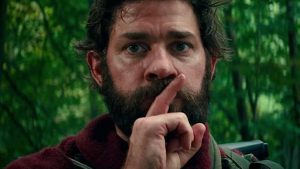 Last fall, I was contacted by an editor with the Poetry Foundation, asking if I’d like to write an essay about Stephen King’s poetry. He felt there was a story there to be told that hadn’t been explored before. I was game, and it was the Poetry Foundation, after all, publishers of Poetry magazine.
Last fall, I was contacted by an editor with the Poetry Foundation, asking if I’d like to write an essay about Stephen King’s poetry. He felt there was a story there to be told that hadn’t been explored before. I was game, and it was the Poetry Foundation, after all, publishers of Poetry magazine.
The original brief was for 2500 words, which didn’t take me long to write. I turned my first draft in several weeks before deadline. The editor sent it back covered in red “track changes” marks and a request to expand it significantly. Include more quotes from the works, dive deeper. So I did. Second draft was 7500 words! Sent that in and, after a while, I got another copy back covered in red editorial ink. Maybe I went a bit overboard for an online essay. Draft three was around the 5000-word mark. Another round of revisions. I’ve never been so heavily edited in my life! But at last we were there, nearly. Off it went to the digital editor, who had a few cuts and changes. A new draft.
And then came a process I’ve never been through before: fact checking. I knew it was coming, but in my mind it was going to be an interrogation. What is the source of this fact? Where does this quote come from? However, what it turned out to be was a request for supporting documentation for every single fact and quote in the essay. I ended up sending along nearly 60 scans from primary and secondary sources and hyperlinks to online articles. I only missed out on three “facts,” which I was able to resolve. But still, quite a process!
The essay should be out late next month. I’ll be sure to advertise it when it appears.
Last night I saw A Quiet Place with my buddy Danel Olson. It was playing in the biggest theater in our cineplex, and it was virtually empty. No more than 20 people in attendance. Which was kind of good, because that meant the audience noise was low and for this movie that’s important. I don’t know that I’ve ever watched a film where I’ve spent so much time either holding my breath or with my hands clasped over my mouth. It is an incredibly suspenseful film, one where even an errant nail is a Hitchcockian source of tension.
It’s also a lean movie—no messing around with backstory or exposition. We don’t see the family in their life before the invasion. We don’t even see the invasion: we’re dropped into the story months after things go bad. We learn about the new reality by seeing it in action—and a little bit by reading some headlines posted on a basement wall. The family doesn’t congratulate themselves on surviving because they have a deaf daughter and thus they are better equipped to communicate silently. We just work that out ourselves. The early scene on the bridge shows the stakes: no one is safe. It’s a cleverly written movie that trusts the audience. Tight, intimate, chilling and devastating. The final shot is perfect.
My only question was: why didn’t they find somewhere noisy to live or create a noisy environment around them so they didn’t have to walk on “eggshells” all the time? They understood the concept, so why not put it into practice more on a daily basis? Still, I enjoyed the hell out of this film.

